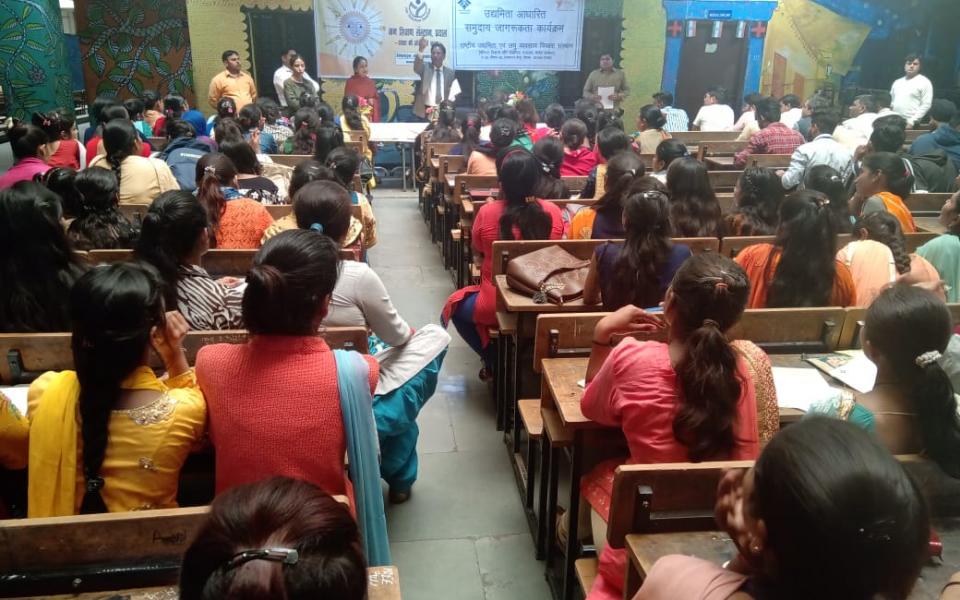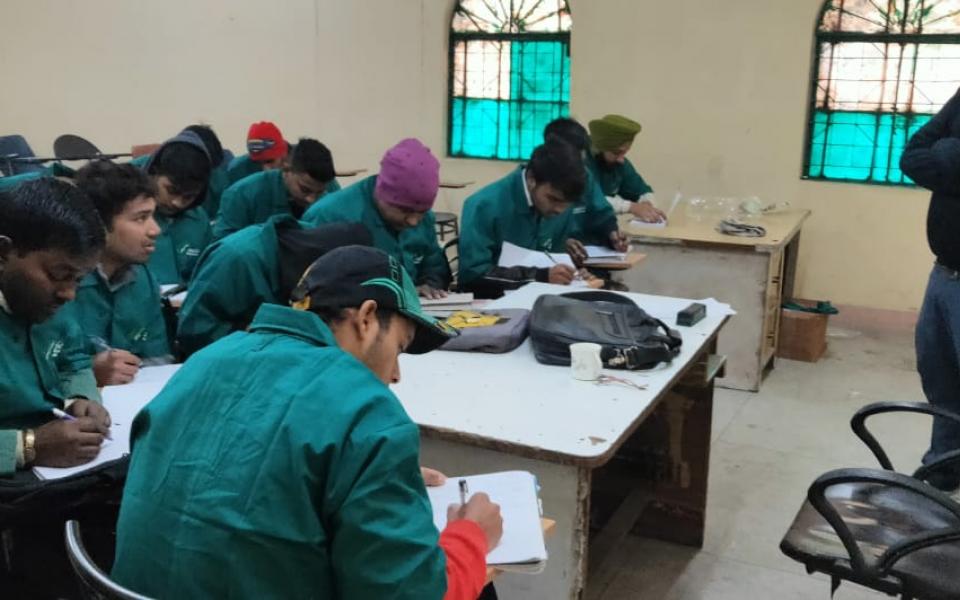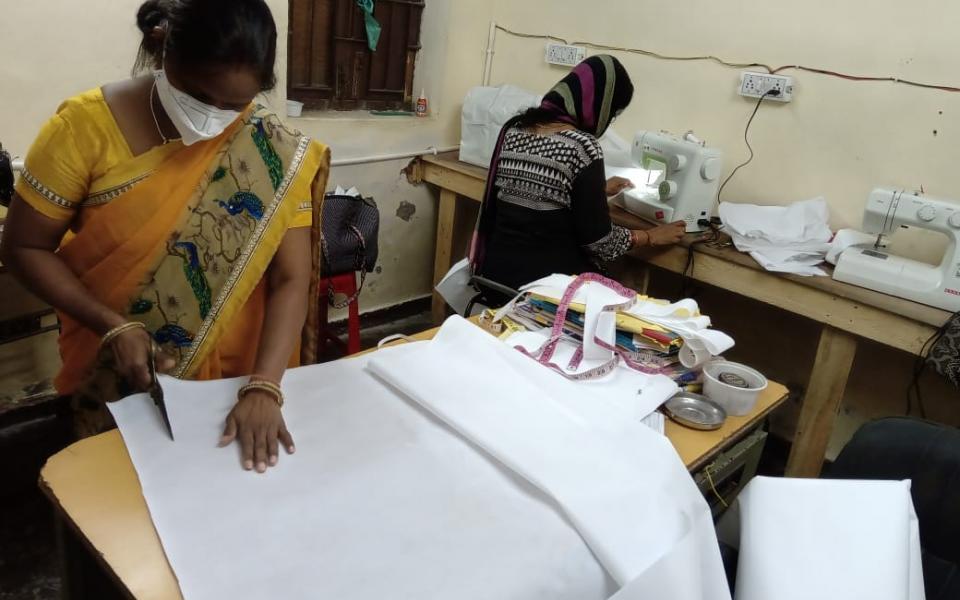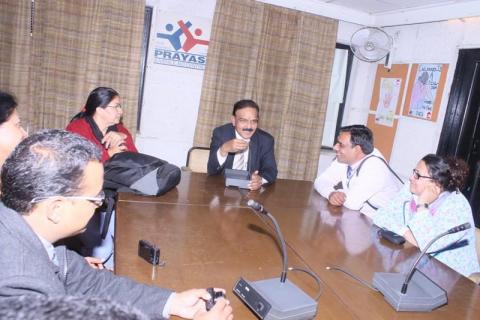
Written by Atharva Mehendale, Community Project Manager, URI - North India & Afghanistan
Global politics has gone through a drastic shift resulting from the growth of non-governmental organisations. NGOs or CSOs (Civil Society Organisations) have moved from being in the background to having a presence in the midst of world politics, and, as a result, are exerting their influence and power in policy making at a global scale.
Given the unprecedented growth in the numbers and the power of NGOs, it becomes necessary to understand how their role has changed or matured. These NGOs are unfettered, not answerable to specific agendas, and, in many instances, can act independently. Even though NGOs are highly diverse organizations, the one common goal is that they are not focused on short-term targets, and hence, devote themselves to long-term issues like climate change, disease prevention, or human rights. In addition, public surveys state that NGOs often have public trust, which makes them a useful proxy for societal concerns (Hall-Jones, 2006). NGOs and civil society organisations play a crucial role in (1) social development, (2) sustainable community development, and (3) sustainable consumption.
One such non-governmental organisation in India, that has been driving social change for over three decades is Prayas Juvenile Aid Centre. The organisation was founded by Amod Kanth, who was the Joint Commissioner of Delhi Police in 1988. A huge fire broke out in the Jahangirpuri locality of North Delhi that year which resulted into a number of casualties, devastated families and left a large number of children orphaned. Amod Kanth, who reached the site for inspection saw around 25 such children there. He rushed them all to the Jahangirpuri A Block Police Station for some food and shelter for the night. He soon realised that there weren’t strong legislative policies that covered such children and that they were practically homeless. This was how Prayas was born. It was established by Mr. Kanth, who brought together the Delhi Police, Shramik Vidyapeeth (an organization that provided vocational skilling to laborers in the unorganized sector to improve their working conditions, and to rehabilitate them), and the Department of Social Work, Government of India. The very first centre of the organization came up in Jahangirpuri in 1988.

The organization gradually grew as Mr. Kanth built another centre in the same locality in the year 1998. This contributed towards preventing such children from being trafficked. Today, Prayas has over 200 such centres across India. All of Prayas’ shelter homes are covered under the Juvenile Justice (JJ) Act. The Act prescribes two types of shelters – one for children in need of care and protection; and the other type which acts as observation and correction homes for children who commit crimes. Prayas facilitates school education for kids (through national open schools), opportunities for higher education (through its accreditation to IGNOU) and vocational training courses including those for plumbing, electrical work, beautician training, art and craft, stitching, and computer use. Child Line- a toll free emergency helpline for children was an initiative that Prayas spearheaded in the 1990s. The helpline acts as a point of contact for children to reach out, voice their problems, and raise their concerns. The helpline number (1098) was suggested by some children in one of Prayas’ shelters – counting backwards from 10 up to 8, which would make it easier for them to remember. Today, the helpline works across India.
In the year 2000, Prayas took over the functioning of Shramik Vidyapeeth. Today, it is called ‘Jan Shikshan Santhaan’ and works towards providing livelihood opportunities to workers in the unorganised sector, unskilled workers, women, workers belonging to the socially underprivileged classes, and the illiterate. This initiative is focused on facilitating functional literacy – providing a source of livelihood and associated learning opportunities. Jan Shikshan Santhaan functions under the Ministry of Skill Development and covers over 50,000 people across 40 shelter homes and 250 skilling centres across India. Prayas also runs night shelters for daily wage workers who live on roadsides and footpaths. Prayas joined the URI network in 2008. URI has been instrumental in supporting the initiatives of Ms. Sadhana, Director - Jan Shikshan Santhaan in carrying out health checkups, organizing art-based competitions and celebrating special days with the children of Prayas.

Over the years, Prayas has liaised with the Government of India to bring about policy changes – especially in the way in which the homeless and the socially underprivileged are viewed. It carried out a nationwide survey on child abuse which led to the formulation of the Protection of Children from Sexual Offences (POSCO) Act in 2012. In light of the Covid-19 pandemic, Prayas made and distributed cotton masks in communities across India; in addition to generating public awareness about personal hygiene and social distancing. Ms. Sadhana believes in the transformative role that NGOs play in community building and awareness. The massive public trust that NGOs garner over the years contributes towards helping them build a strong foothold at the grassroots level. This very trust has an instrumental role to play in formulating and driving policy action.

